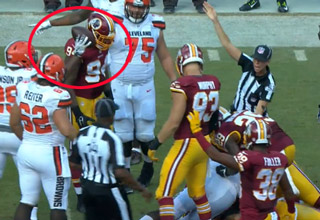Payoffs for being a Coalition member in the Iraq War
Speculations about the real reason for such great support for the Iraq war might not have been because the countries involved really felt we should be there, (As many supporters for the War here in America have claimed) but because they stood to benefit greatly for their own Interests.
The following below is not written from me, but has been take from this Wikipedia link and posted here, so those of you who might have normally over looked it through the links portion, can not read it here.
Many nations received monetary and other incentives from the United States in return for sending troops to or otherwise supporting the Iraq war.[ Below is a partial list of some of the incentives offered to coalition members:
- Turkey - Turkey was offered approximately $8.5 billion in loans in exchange for sending 10,000 peacekeeping troops in 2003. Even though the US did say the loans and the sending of troops to Iraq were not directly linked, it also said the loans are contingent upon "cooperation" on Iraq.[101]
- Singapore - In May 2003 the Bush Administration signed a free trade agreement with Singapore, the first with an Asian country. In announcing the deal, President Bush hailed Singapore as "a strong partner in the war on terrorism and a member of the coalition on Iraq." Asia Times columnist Jeffrey Robertson argued was a reward for Singapore's support of the Iraq invasion.[99][102][103]
- Australia: In 2004 the Bush Administration "fast tracked" a free trade agreement with Australia. The Sydney Morning Herald called the deal a "reward" for Australia's contribution of troops to the Iraq invasion.[104][105]
- Great Britain: As of 2006, the Independent reported that British companies have received at least £1.1bn contracts for reconstruction work in postwar Iraq.[106]
In addition to direct incentives, critics of the war have argued that the involvement of other members of the coalition was in response for indirect benefits, such as support for NATO membership or other military and financial aid. Almost all of the Eastern European nations involved in the Coalition have either recently joined or are in the process of joining the US-led NATO alliance (namely Bulgaria, Georgia, Albania, Estonia, Latvia, Lithuania, Macedonia, Romania and Slovakia).[107], the exceptions being Poland, Hungary and the Czech Republic which joined NATO in 1999. Estonian Foreign Minister Urmas Paet, for example, said on April 21 that Estonian troops had to remain in Iraq due to his country's "important partnership" with the United States.[108]
At least one country, Georgia, is believed to have sent soldiers to Iraq as an act of repayment for the American training of security forces that could potentially be deployed to the break-away regions of South Ossetia and Abkhazia.[109] Indeed, Georgian troops that were sent to Iraq have all undergone these training programs.[110]
El Salvador's President Antonio Saca has been accused of deploying troops in return for membership in the Central American Free Trade Agreement (CAFTA),[111] and as a member of the right-wing ARENA party that was supported heavily by the United States during the El Salvador Civil War, is certainly influenced by the United States.
Conversely, Greece's non involvement (a poll indicated 90% against the Iraq Invasion), may have led to the US recognizing the Republic of Macedonia under its constitutional name.





14 Comments